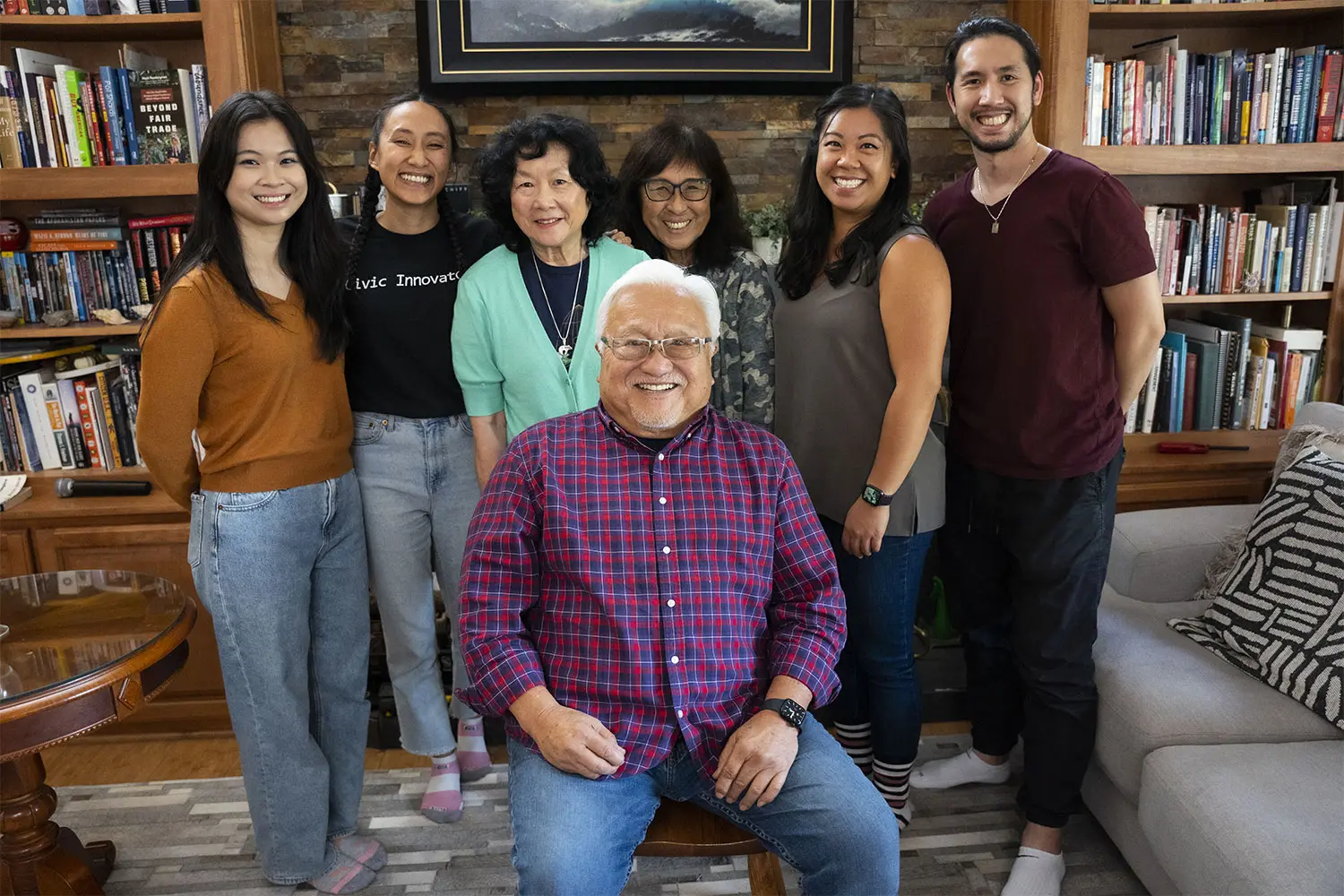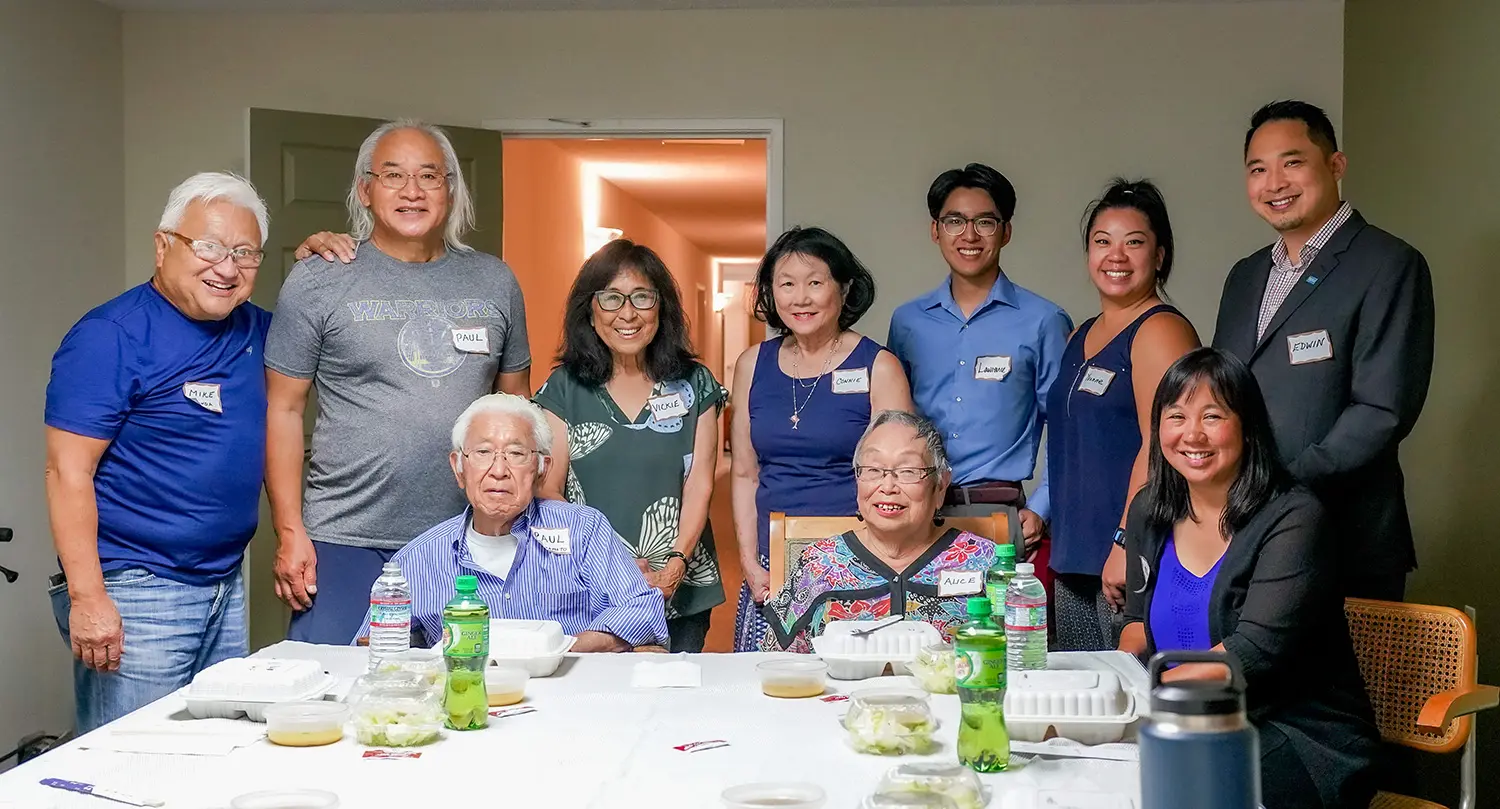Given the rise in Anti-Asian violence, this digital oral history archive and curriculum project is timely in collecting, preserving, and sharing personal and collective stories of struggle and joy.
We amplify and uplift our narrators’ contributions to the legal, economic, political, and social histories of the County, the State of California, and the United States. The recorded life stories (audio and video) include English-language transcripts of the interviews, brief summaries, keywords, and time logs.

Within the backdrop of the COVID-19 pandemic and the rise of anti-Asian violence, a collective of community leaders (Michele Lew, Alette Lundeberg, Connie Young Yu, Paul Fong, Vickie Taketa, and Alice Kawazoe) met to discuss their concerns and strategize ways to 1) center the wisdom and experiences of collective action and excellence among Asian Americans and Pacific Islanders (AAPI) and 2) collect these stories of our elders, the torchbearers, before it was too late. The COVID-19 pandemic showed us the fragility of life and the importance of preservation. This served as the impetus for the outreach to the County Board of Supervisors to support efforts to collect, preserve, and share the diverse life stories of AAPI activists and community leaders for future generations.
The Community Advisory Board has immense gratitude for the County, particularly Supervisor Otto Lee and Cindy Chavez, for championing our efforts.
The mission of this project is to document the lives and legacies of Santa Clara County Asian American and Pacific Islander (AAPI) leaders and activists, in order to amplify and uplift their contributions as well as combat racism and anti-Asian violence. Through the narratives of those who have dedicated their lives to fighting for justice and civil rights, the project will not only archive oral histories but also aim to inspire and motivate future generations for a better America.
In Santa Clara County (“the County”), Asian Americans and Pacific Islanders (AAPI) represent more than 40% of the total population. The County is the second most populous county of Asian Americans in California. However, existing school textbooks, curriculum, and library holdings often still overlook the experiences and histories of AAPIs. Moreover, many AAPI cultures are multigenerational and collectivist in nature, but few scholarly works highlight cross-AAPI and cross-racial solidarity work. As civil rights attorney Dale Minami posited, “The key to ending Anti-Asian violence is through education of AAPI history and experiences.” So, this project does just that.
AAPI Perspectives examines the activist and leadership contributions of Asian Americans and Pacific Islanders (AAPI) in the County of Santa Clara from the 1950s to the present moment. Given the rise in Anti-Asian violence, this digital oral history archive and curriculum project is timely in collecting, preserving, and sharing personal and collective stories of struggle and joy. We amplify and uplift our narrators’ contributions to the legal, economic, political, and social histories of the County, the State of California, and the United States.
By centering the voices of our community leaders as the collective protagonists, this project's interviews and lesson plans reveal how experiences of racial and gendered violence along with social activism and change inform new movements and community-centered action.
Principal Investigator Dr. Yvonne Y. Kwan and Project Manager/Creative Director Ellina Yin worked closely with the Community Advisory Board to identify key figures in the County of Santa Clara who have made significant impacts, especially in the areas of education, politics, arts, and community development. Consent forms were collected for each narrator.
Often partnering with co-interviewers like Connie Young Yu and Vickie Taketa, the interview team worked with Breaking Sky Productions (Howard Lui, Michelle Quach, and Sarah Dang) to conduct high quality video interviews that were later transcribed by Research Assistant Nina Chuang and her team of volunteer student interns (Cayden Gu, Audrey Shen, Maximillian Rabbitt-Tomita, and Keiya Wada). Dr. Kwan reviewed all the transcriptions, conducted thematic analysis, and collaborated with local educators to develop curriculum grounded in Ethnic Studies pedagogy and epistemologies.
The curriculum writing team includes Lan Nguyen, Hayley Arima, Danny Le, Albert Wang, and Jolynn Asato. Their lesson plans not only interweave the oral histories into the curriculum but are also grounded in grade-span relevant CA-state learning outcomes. The Program of Asian American Studies at San José State University also offers “Ethnic Studies Methods,” “Oral History Methodology,” and other courses that train students to be community oral historians.
The Japanese American Museum of San Jose (JAMsj) is responsible for preserving the AAPI Perspectives oral history digital archive and curriculum collection. The recorded life stories (audio and video) include English-language transcripts of the interviews, brief summaries, keywords, and time logs. The curricula include presentation slides, lesson plans, and resource materials.
The Community Advisory Board (CAB) provided input about and helped facilitate research design, data collection, and dissemination of findings. Members include individuals and representatives from community organizations who are knowledgeable about key AAPI figures and activists from the County. They support oral history collections by leveraging decades-long relationships to mentor and capture nuanced and detailed stories from oral history narrators.

“Home” was composed and written by Kamiko and Anna, a tribute to AAPI Perspectives as it weaves in themes of family and community healing. It was recorded and filmed live in the Japanese American Museum of San José.
Credits
Executive Producer: Ellina Yin @ellinayin, Japanese American Museum of San José @jamsofficial. Co-Producers: Haley Cardamon @sanjoseday, Jason Hoang @hasonjoang. Director: Jason Hoang @hasonjoang